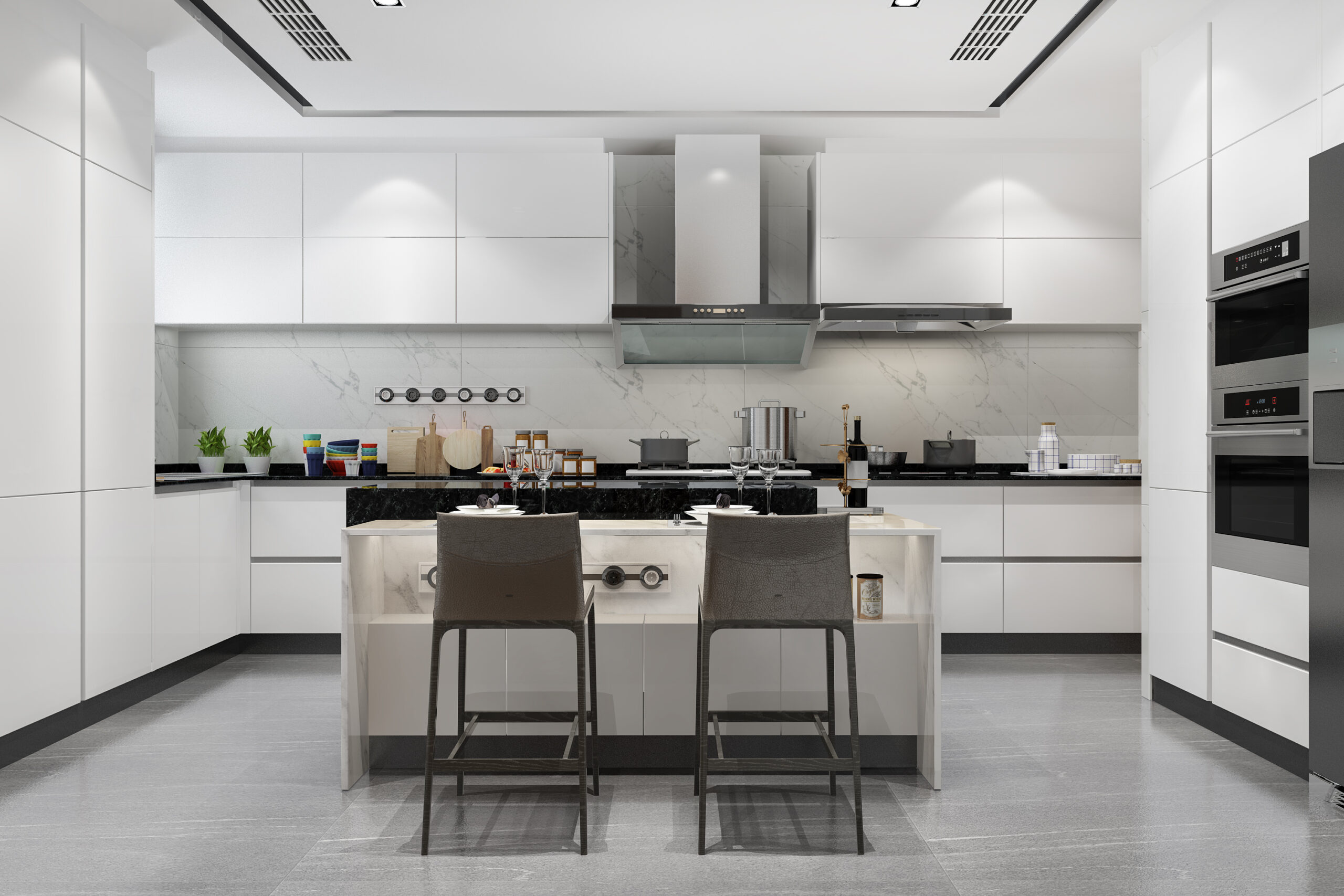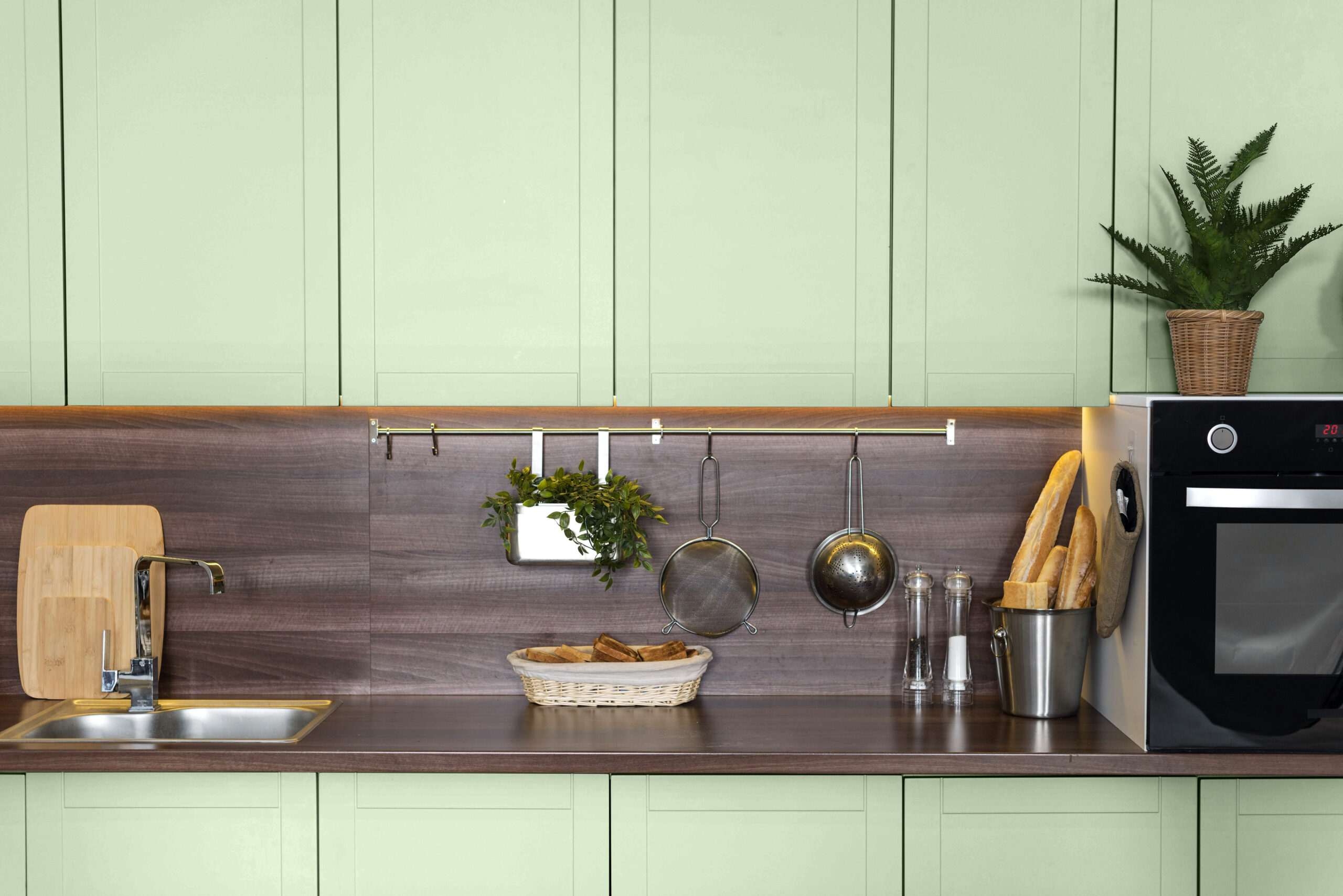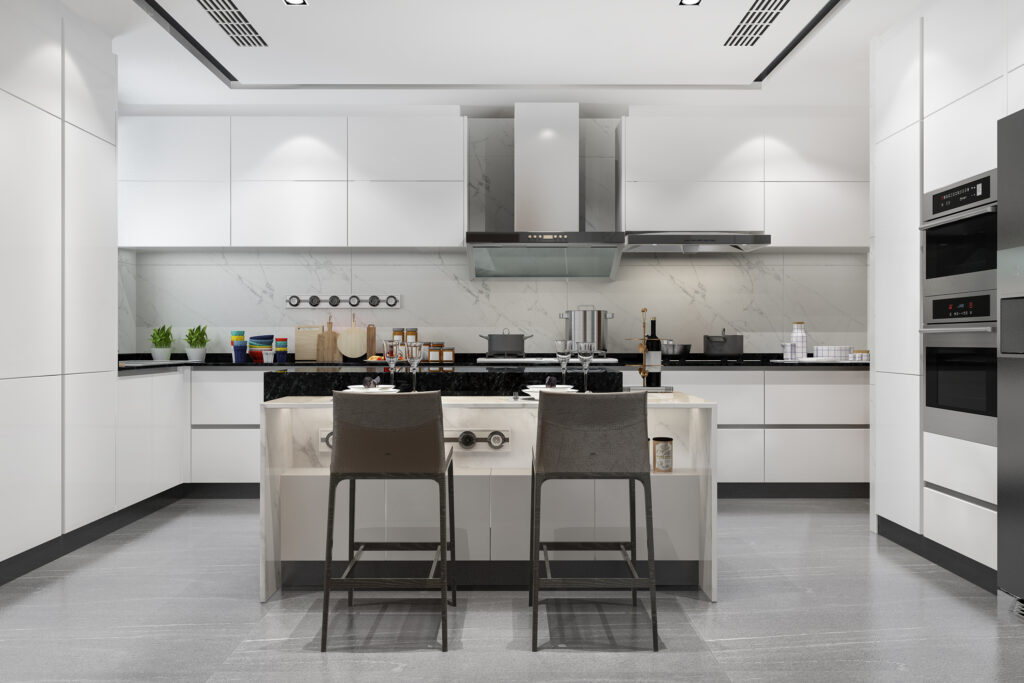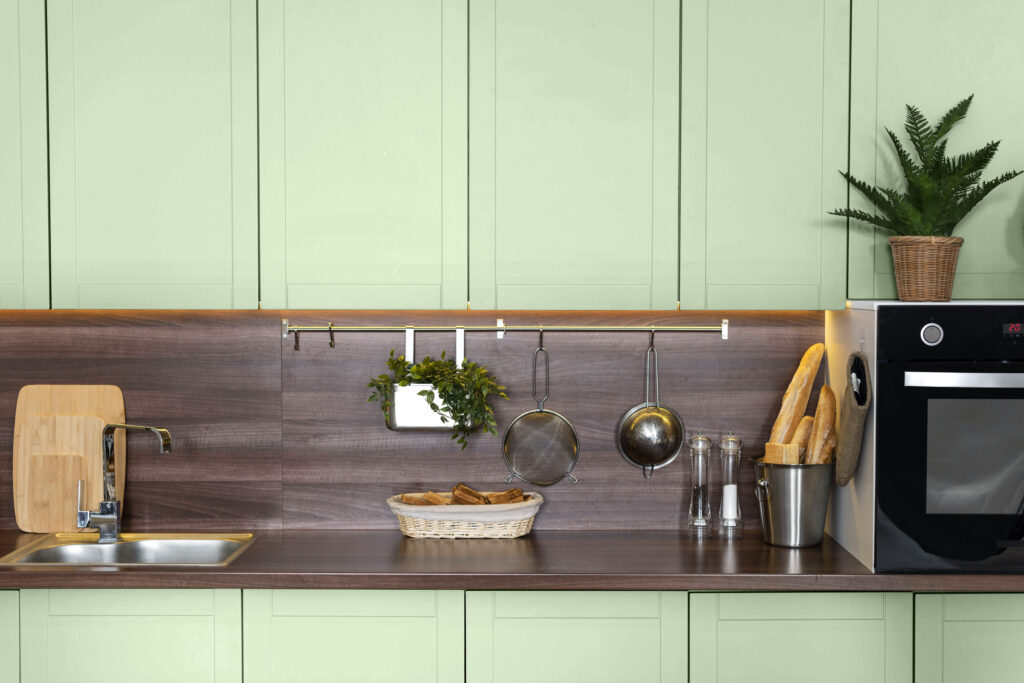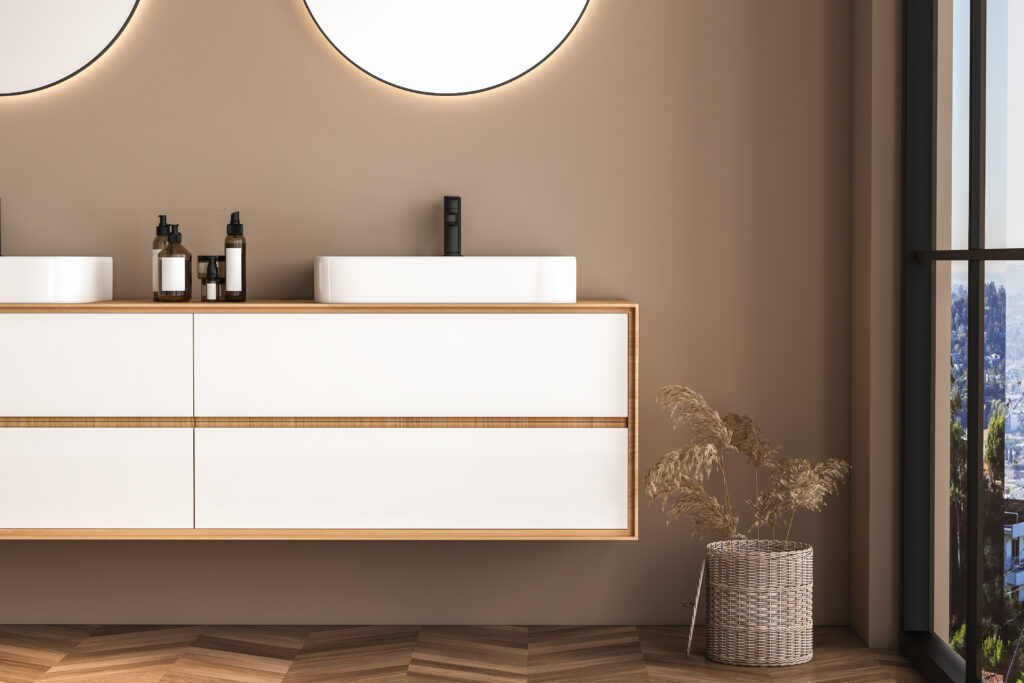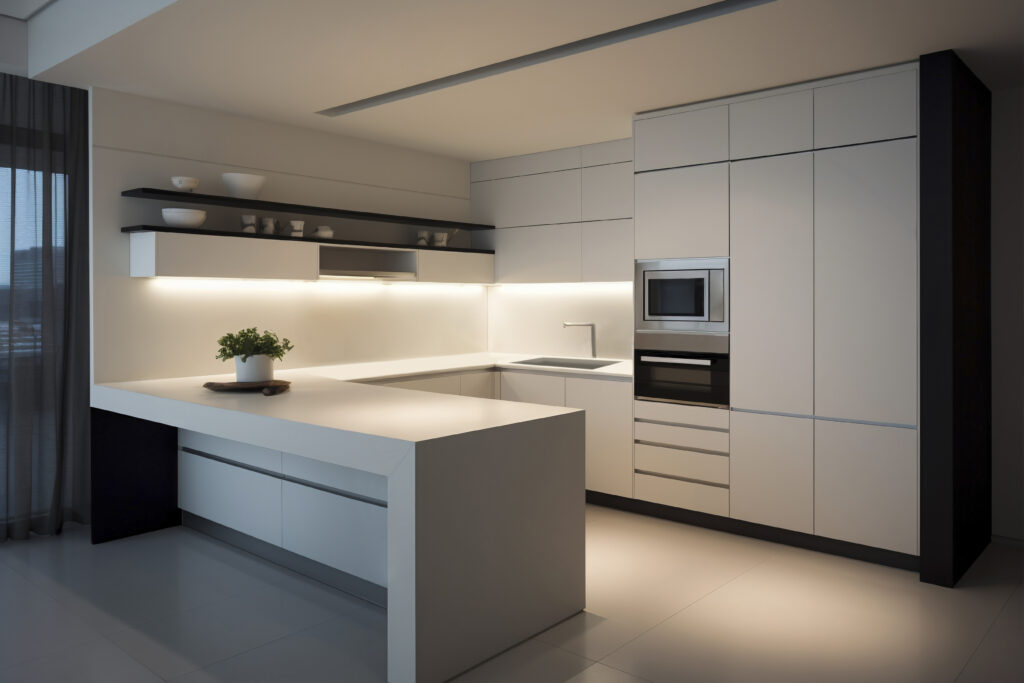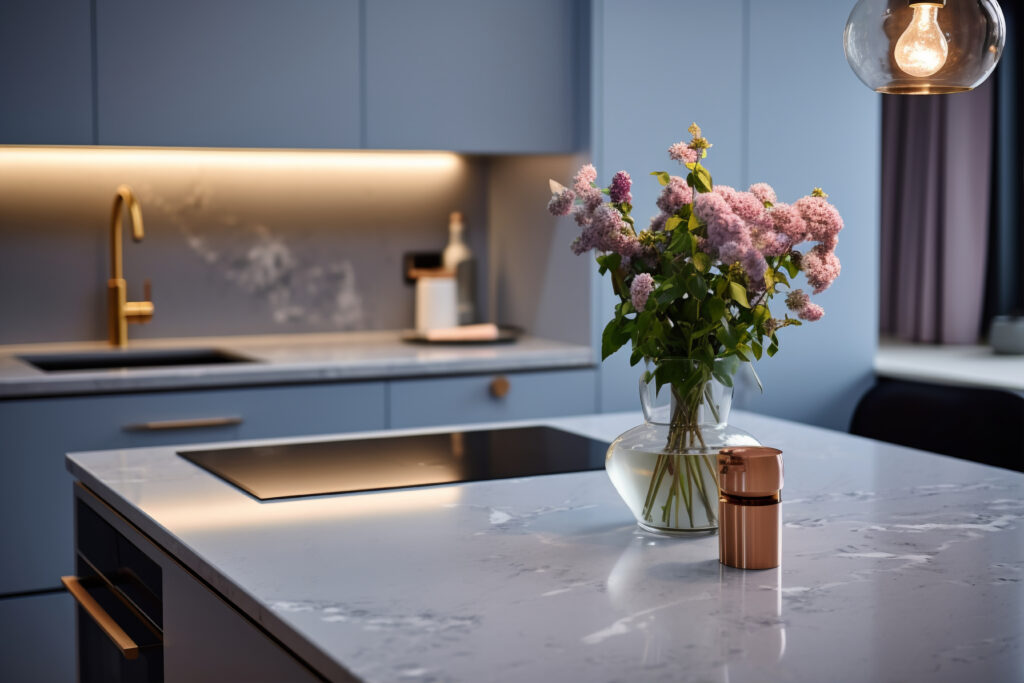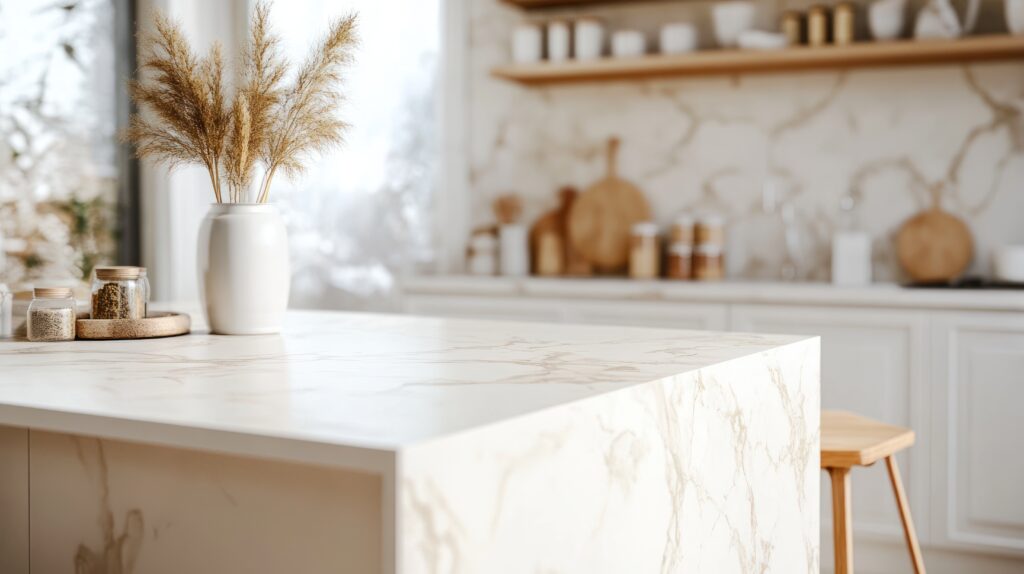Effective cleaning tips come in many different forms and actions that can be implemented by home owners who are looking to maintain a clean home space. Here are 5 amazing tips that keep your kitchen clean and prepped for the upcoming festive season
Effective Cleaning Tips #1: Making Sure To Clean Appliances

The cleaning of appliances in the kitchen helps keep the area hygienic and pleasurable for cooking. Clean appliances prevent the spread of bacteria and odour. Usually, cleaning is done to the often used appliances such as microwaves, ovens, refrigerators and dishwashers. A simple yet effective way to clean the microwave is to heat a bowl of water with lemon or vinegar in it for about five minutes.
Steam loosens the food splatters which is quite easy to wipe off with a cloth. Ovens need periodic deep cleaning especially after roasting and baking sessions. Smear a paste of baking soda and water on products and let them sit overnight to break down any tough grease and food residue. This way, they can easily be wiped down the next morning.
@ampquartz Tutorial how to.. do your chores… easily.. I mean.. You could have just used your 5% energy to clean your countertops in just 3 minutes. ESPECIALLY when your countertop is stain resistant, takes 20 seconds also can laa~ Make your life easier, reduce your busy time! But yeah sure, you still have to do your chores tho.. 𝐖𝐡𝐚𝐭 𝐝𝐢𝐟𝐟𝐞𝐫𝐬 𝐀𝐦𝐩𝐪𝐮𝐚𝐫𝐭𝐳 𝐟𝐫𝐨𝐦 𝐨𝐭𝐡𝐞𝐫 𝐜𝐚𝐛𝐢𝐧𝐞𝐭 𝐬𝐡𝐨𝐩?🤔 🛣️10+ Years of Expertise 🏬We have physical showroom 🔨Personalize custom cabinets for kitchen, wardrobe, TV console & shoe racks ✨Toptier materials from local & international brands! 👩💼FREE Consultation 🤗Friendly Consultants ✒️FREE 3D Drawing 👨👩👧👦Kid-Friendly Showroom 💳0% Instalment Plan 🎁Lucky Draw 📢Promotion as low as RM7, 999 ✅Affordable Price At Ampquartz, we believe your home deserves the best. That’s why we use only premium materials and expert craftsmanship to create custom cabinets and countertops that are built to last. Call us today to schedule your free consultation. Your perfect space awaits! 📞𝐖𝐚𝐧𝐧𝐚 𝐛𝐮𝐲? 𝐂𝐨𝐧𝐭𝐚𝐜𝐭 𝐮𝐬! +6017 732 0149 (Jasmine) +6010 707 7815 (Lekha) +6010 719 7191 (Hema) https://go.wa.link/ampquartz 📍𝐕𝐢𝐬𝐢𝐭 𝐨𝐮𝐫 𝐬𝐡𝐨𝐰𝐫𝐨𝐨𝐦. 𝐖𝐞 𝐨𝐩𝐞𝐧 𝐞𝐯𝐞𝐫𝐲 𝐝𝐚𝐲! Address: https://waze.com/ul/hw23bfh9s4 82, Jalan Gaya 1, Taman Gaya, Ulu Tiram, 81800 Johor Bahru 💻 𝐒𝐞𝐞 𝐨𝐮𝐫 𝐩𝐚𝐬𝐭 𝐰𝐨𝐫𝐤𝐬 𝐡𝐞𝐫𝐞! https://www.ampquartz.com/ #nineandshine #ampquartz #kitchencabinets
♬ original sound – Ampquartz Kitchen Cabinets – Ampquartz Kitchen Cabinets
Refrigerators will have built up spills and odours over time without regular cleaning. A weekly cleaning schedule by just wiping down the shelves with a simple vinegar and water solution keeps the fridge fresh and prevents mould or bacterial growth. Check on expired items to keep the efficiency of food storage. Dishwashers, though they clean dishes are appliances that require maintenance to stay fresh and preserve their efficiency. Running an empty cycle through with vinegar or baking soda will help descale and deodorise the appliance.
Small appliances such as coffee makers, toasters and blenders should also be cleaned regularly. Regular cleaning by removing and wiping them down reduces the likelihood of any type of buildup, crumbs or dirt that could hamper the functioning of such appliances. Cleaning kitchen appliances not only gives a very nice experience but also makes the area more healthy and safe for food preparation. Regular maintenance of the appliances decreases the possibility of damage and saves time and money in the longer run.
Effective Cleaning Tips #2: Always Sweeping And Mopping The Floors

Sweeping and mopping are some of the important actions when it comes to cleaning the kitchen — making it look hygienic and inviting. These kitchens can be called high-traffic areas where food particles, spills and other sorts of dirt often build up rather quickly. Begin the day by sweeping the floor to get rid of all crumbs and dust including other debris that may host bacteria and invite pests. Sweep the floor efficiently — use a broom or a vacuum designed for hard floors including corners and under appliances as that is where dirt often accumulates.
After sweeping, you should be ready for mopping to complete cleaning. Choose an effective type of mop for your floor — traditional string mop, microfibre flat mop or even a steam mop. Most hard surfaces will clean with a mixture of warm water and a mild floor cleaner or with a solution of vinegar and water to lift stains and remove grime. Mopping removes dirt that is stuck to the surface of the floor but also sanitises the floor — decreasing the potential contamination from raw foods or spills. Sectional mopping is recommended, this way, one is able to clean in sections without having a huge amount of water on the floor.
Ensure the kitchen is well-ventilated during the process to increase drying and reduce odours. Regular sweeping and mopping will leave your kitchen looking fantastic and will protect the floors from getting damaged because of dust and debris accumulation. Incorporate this easy yet effective cleaning schedule into your kitchen maintenance and a much healthier environment for cooking and dining will come into fruition. In turn, this will make the kitchen much more pleasant and inviting for family and friends alike.
Effective Cleaning Tips #3: Following The Idea Of “Cleaning As You Cook”
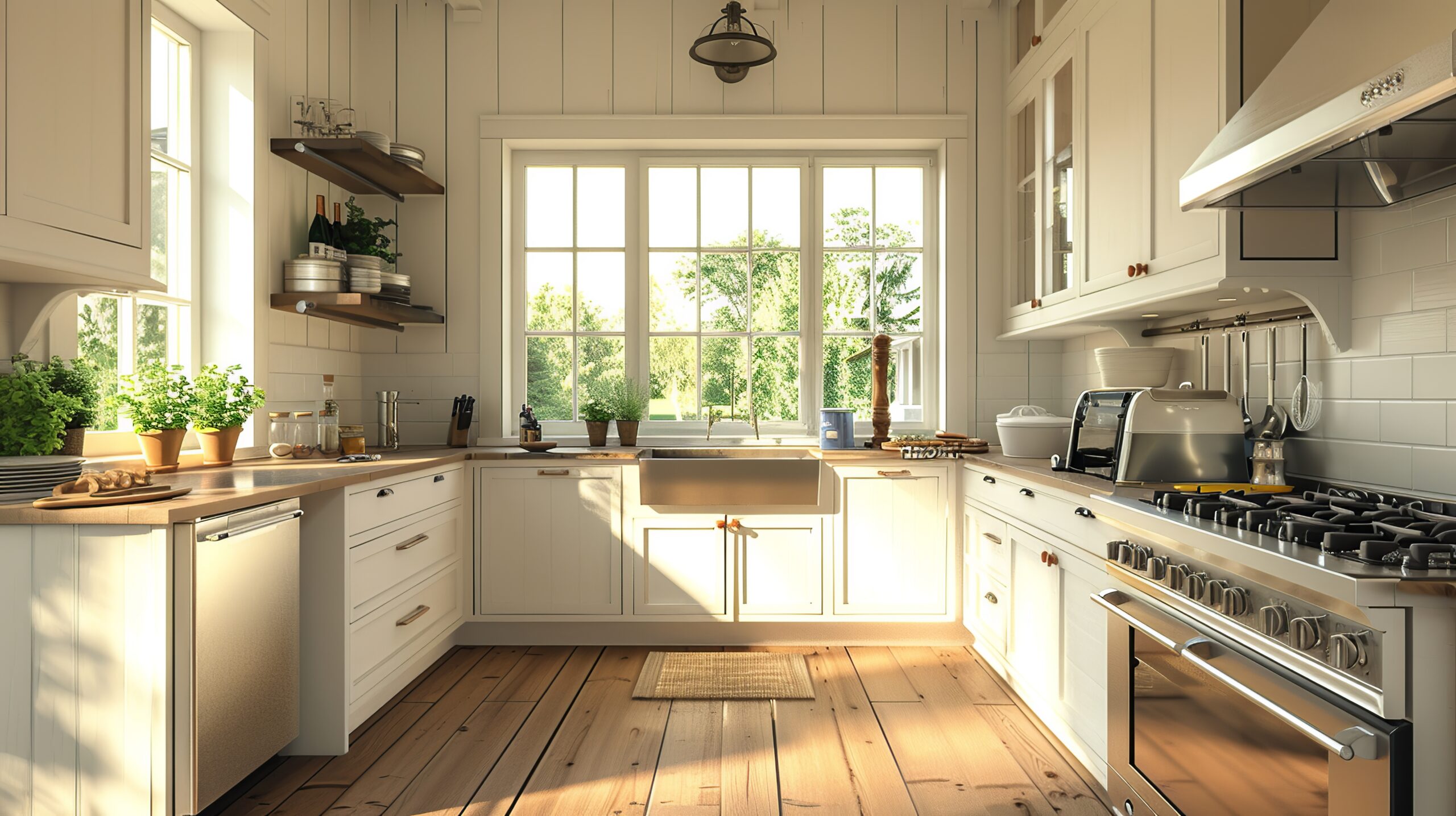
Cleaning as you go is the most efficient kitchen cleaning strategy because it somehow organises cooking activity and saves one from the nightmare of cleaning up afterwards. This practice involves cleaning your workspace while preparing meals and seeing that messes are cleaned up immediately before they build up.
Start by having ingredients and all utensils at hand. This will ensure a seamless workflow since you can be able to reach whatever you need. While you chop vegetables, peel an ingredient or mix up some batter, place the scraps and used utensils into the sink or the trash right then and there. This keeps clutter from building up and does not fill your countertops with something unnecessary. Clean off any sauce or oil spills right there and then with a wet piece of cloth. This will prevent all sorts of sticky messes later that would be hard to clean. And not to mention, the sooner the pots and pans are rinsed after use, the better.
@ampquartz Nak renovate dapur, jangan buat silap macam ni! Kabinet serabut, susunan tak efisien, sampai nak cari periuk pun susah. 🤦🏻♀️ Dengan tips ni, korang boleh pastikan kabinet dapur tak macam “almari pakaian” penuh dengan barang. Let’s make your kitchen neat, kemas, dan senang nak guna! ✨ #KitchenGoals #CabinetGoals #kitcheninspo #kitchencounters #kitchendesign #KitchenCabinets #KitchenCountertops #KabinetDapurJohor #KabinetDapurJB #KabinetDapurUluTiram #KitchenCabinetJohor #AMPQUARTZ
♬ hey ya – 🎧
Putting them into a soak can help loosen enough of the tough food particles that by the time dinner is done, they will be relatively easy to clean. Keep a cleaning spray and some paper towels or dish cloth for any spills and clutter that may happen and clean it up straight away. This will not only keep your area clean but it also improves your cooking experience because you are concentrating on your food and not on the mess you have to clean up afterwards.
Besides that, continuous habit of cleaning up as you cook develops a cleaner kitchen — reducing cross-contamination. Finally, cleaning while cooking saves you time and also offers a friendlier kitchen to stay in which could stimulate creativity and reduce the frustration sometimes related to cooking and cleaning. It is by following this easy yet efficient method that cooking can be made an orderly and pleasant process.
Effective Cleaning Tips #4: Wiping Down Surfaces Daily

Some of the quickest and most effective kitchen cleaning tips include daily wipe downs to help keep your cooking space hygienic and inviting. By dedicating yourself to a quick surface cleaning routine after every meal preparation, you can considerably lessen the dirt, grease and bacteria buildup on the countertops, stovetops and other surfaces.
Always have on hand some multi-surface cleaner or homemade water and vinegar solution in your kitchen. At the end of every meal, take some time to go over all the surfaces with a clean cloth or paper towel. This will not only remove food particles and spills but will also help prevent stubborn stains and doors. Pay extra attention to surfaces such as cabinet handles and appliance surfaces since these areas are breeding grounds for bacteria.
Cleaning as you go also allows for an easier, smoother process of cooking and reduces the clean-up afterwards. Allow yourself to get in the groove of cleaning surfaces during cooking. For example, if your food is cooking or simmering, take that time to wipe down the stove and countertops. This creates a neater and more efficient kitchen.
By having a daily wipe-down, this will not only keep the messiness factor at a minimum but it will also provide you with a better cooking experience — much more pleasing and far less stressful. More importantly, maintaining a clean kitchen can lead to better food safety as this diminishes the risk of cross-contamination and the risk of illnesses. You may take your routine further by even using disinfecting wipes for added sanitation — any time that you need after having prepared something raw. Furthermore, with such regular cleaning, your kitchen can become a healthy and attractive place to prepare food and gather around.
Effective Cleaning Tips #5: Cleaning The Refrigerator
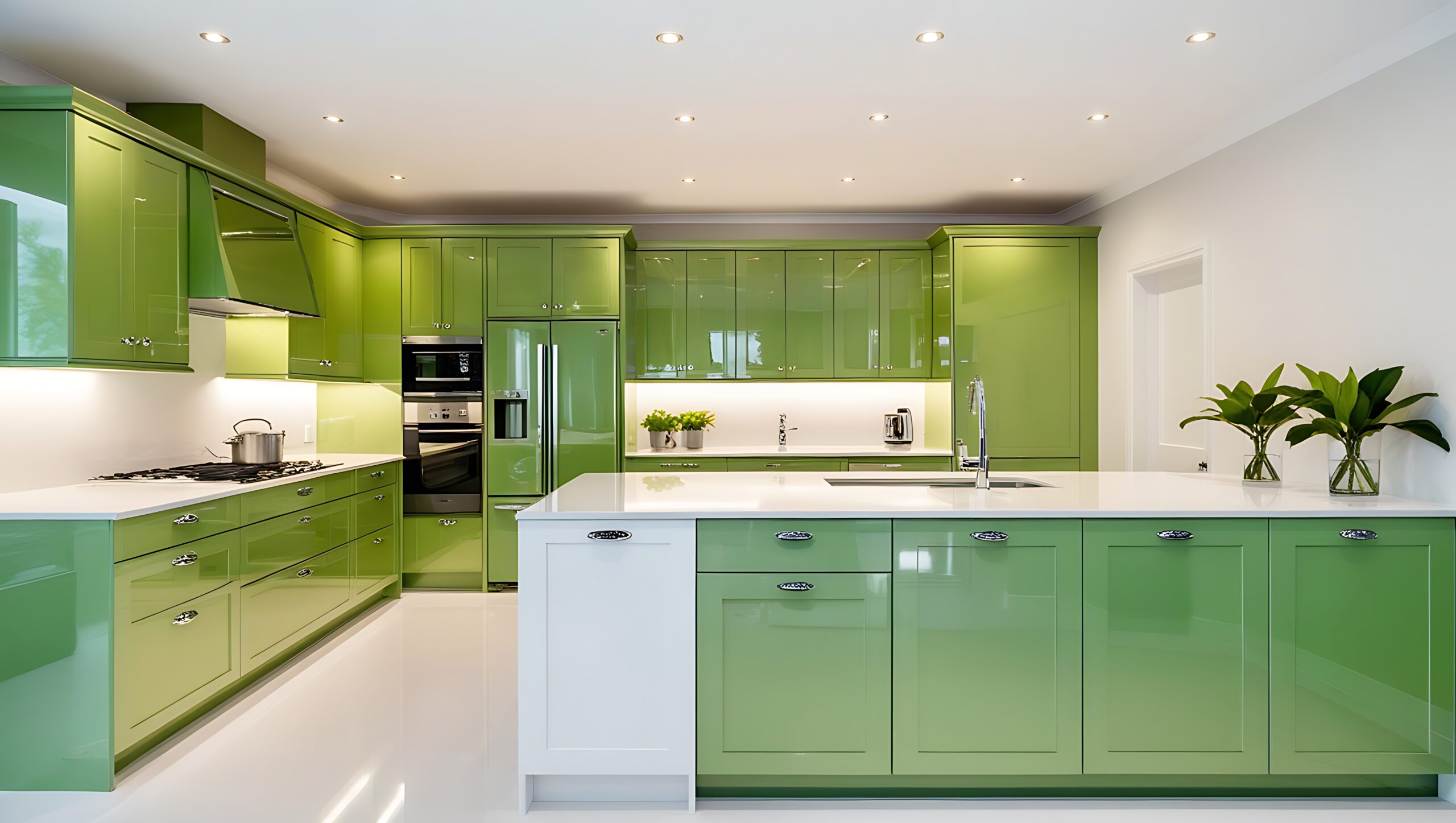
Cleaning the refrigerator is a core part of keeping a clean kitchen and can be done very effectively if one takes a proper approach. First, one has to clear everything out of the fridge — all the food items have to be taken out and expiration dates should be checked so expired or spoiled items can be discarded. This will decongest the space in the refrigerator and give you a view of what you have in store, allowing meal planning.
Next, take out the removable shelves and drawers and wash them with warm water mixed with mild soap. For difficult stains, soak them in a mixture of baking soda and water as it is a mild abrasive and deodorises well. As you clean, take some interior surfaces of the refrigerator with you and wipe them with water mixed with vinegar in equal quantities. This natural disinfectant will eliminate bacteria and leave the fridge smelling fresh.
@ampquartz Ini pantang larang deko dapur yang korang kena tahu, atas nasihat pereka terkenal dunia untuk make sure idea dapur korang nampak eksklusif & slayy~ 𝐁𝐨𝐨𝐤 𝐜𝐮𝐬𝐭𝐨𝐦 𝐜𝐚𝐛𝐢𝐧𝐞𝐭 𝐣𝐨𝐦! 📞 +6017 732 0149 (Jasmine) +6010 707 7815 (Lekha) +6010 719 7191 (Hema) https://go.wa.link/ampquartz 📍𝐉𝐨𝐦 𝐭𝐞𝐧𝐠𝐨𝐤 𝐬𝐡𝐨𝐰𝐫𝐨𝐨𝐦 𝐤𝐢𝐭𝐚! Alamat: https://waze.com/ul/hw23bfh9s4 82, Jalan Gaya 1, Taman Gaya, Ulu Tiram, 81800 Johor Bahru 💻𝐓𝐞𝐧𝐠𝐨𝐤 𝐣𝐨𝐛 𝐬𝐢𝐭𝐞𝐬 𝐤𝐚𝐦𝐢: https://www.ampquartz.com/ #kitchendesign #kitchendesigntips #kitchendesigner #fyp
♬ Cheap Thrills(抖音完整原版) – 赵梓婷
Pay extra attention to the door seals, wiping them down with a vinegar soaked cloth to ensure they are clean as this helps keep your refrigerator running efficiently. Once it is clean inside, dry all the surfaces and shelves super well to avoid buildup of moisture that can develop into mould.
Assemble the refrigerator, then stock food in categories such as items and place the older ones forward so that they may be consumed before their expiration date. To maintain cleanliness, make it a habit to clean up spills weekly and enter a deep cleaning mode monthly. Put an opened box of baking soda inside the refrigerator for constant odour absorption. All these steps added to the cleaning routine of your kitchen not only further the life span of your refrigerator but make it a healthier place for storing food items that help in easier and quicker meal preparation.
Sign Up For Kitchen Design Ideas
Join over 5,000 homeowners subscribed to our newsletter!




